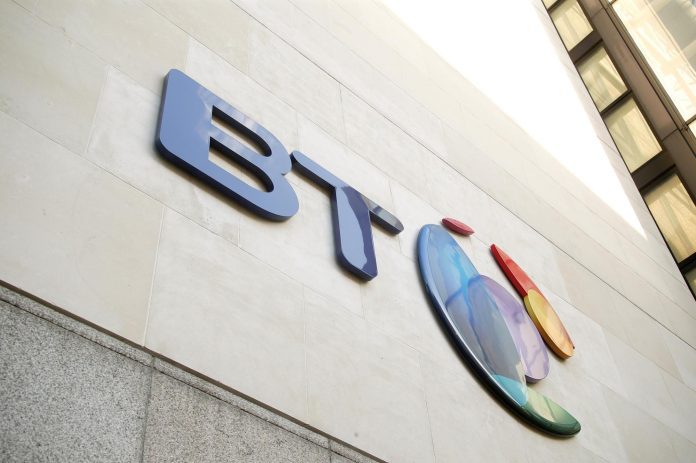The operator pack, as one would expect, is dividing in two around the Industry 4.0 market, suggests UK-based BT, with serious-minded enterprise-geared providers restructuring their sales operations in order to ‘prime’ the pumps, and switch on a new flow of private 5G, industrial IoT, and edge services. This is the case in the UK, the company says, where BT has created a new unit, Division X, to sell digital change, and is pitching as a managed service provider for the UK government sector, healthcare market, and major national corporate clients.
Rob Shuter, chief executive of BT’s enterprise division in the UK, said BT is shaping-up as a ‘tech-co’, rather than a conventional telco, for the design, build, and management of new digital infrastructure. “We are more on the tech-co managed service-provider side. And I’ve always said to my team, we need to be able to prime,” he says. This is a point of difference, he suggests, with more consumer-oriented UK telecoms providers; without naming names, the implication is the likes of Three, and even Virgin Media-O2, in the UK have neither the enterprise base, nor the sales engines, to go after the corporate-sized private 5G market in robust fashion.

Vodafone, on the other hand, might be considered a real contender in this digital change game in the UK; certainly it has spoken in the same terms in these pages about restructuring (horizontally and vertically) to map tech solutions to enterprise problems, and of its expectation to be in the mix with systems integrators and automation specialists when it comes to ‘priming’ Industry 4.0, and everywhere else. Speaking at MWC a couple of weeks back, Shuter said BT Enterprise, like Vodafone Business and OBS, and others, is working outside of the old carrier discipline, by nature.
“We can pick it up in three ways: priming, partnering, and pull through. Other telcos are not going to invest in the prime. Look, it is expensive stuff. I mean, hiring like 120 people to do that – a smaller telco can’t afford that. [And] we are not a telco in the sense we are selling the infrastructure; you can see it in the numbers. There is a billion pounds of revenue from managed services in my business. We are running big end-to-end contracts for big customers. That would not be the same for certain others – which are more like telcos.”
BT’s new Division X, part of its UK-focused enterprise faculty (different to BT Global Services, offering the same private 5G and IoT combo to multinationals, plus its conventional comms patter), is “designed to prime”, he says. Marc Overton, a veteran of Orange’s old dealer channel, has rejoined the firm from Sierra Wireless to lead the Division X team. “Division X has three purposes: to do the solution selling and integration of 5G, IoT, and edge; to run a vertical for us in healthcare; and to manage our legacy ventures-investment portfolio,” says Shuter.
But, as we have written recently, the competitive landscape for telcos in the new digital-change market, apparently so fraught with jeopardy, has been misjudged; these are not straight telco operations going to battle for Industry 4.0, even if they are badged that way. They are pulling on parental stock, but they are also operating outside of traditional licensing and narrow airtime regimes. Shuter says: “The team is set up to figure out what a port customer or a manufacturing customer needs, for example, and to front-up to the customer [with those solutions].”
He goes further: “[BT-owned mobile operator] EE has the biggest geographic [mobile] coverage to start; we have a big installed base. We have set our stall out to be a solution provider for 5G, IoT, and edge. We have a new division, new people, and somebody in to run it. Nobody else has done pretty much any of that.” Vodafone would take exception, presumably. And the point about ‘fronting-up’ is reworded, later, to observe the standard line about ‘co-creation’ – the idea Industry 4.0 is work-shopped, over and again, with customers and partners.
“You cannot look at it just narrowly as a 5G thing, because the solution is always going to join together IoT and edge, as well. And the customer is not coming to us, saying, ‘This 5G stuff sounds cool’. They are coming with productivity and efficiency challenges. We need to stitch these components into a solution. That process of trying to find the interlock between what’s needed by the customer and what the technology can do is, rightly, described in that kind of process of co-creation. [Because] it is still the time of the early adopter; it is not productised on our side, yet.”
That the perceived jeopardy for operators in the private 5G space – where, suddenly, anyone can be an ‘operator’ – is wrong is evident, too, perhaps in the Shuter’s response to BT’s competition in the space. For its enterprise division, used to selling varied fixed and unified comms systems, the idea of ‘co-opetition’, as a kind of build-phase flipside to design-stage co-creation, is hardly new. It knows the ropes very well, and expects to take charge of the run phase; but it is also sanguine that enterprises have their own supply-side predilections.
Shuter says: “We do all of it – the design, sale, build, and run. But sometimes we will get pulled-in behind somebody else on the prime, and sometimes we will partner on it. That is just the duality we live with. There will be occasions where a system integrator is priming, and we are recruited to deploy the private network. There will be occasions where a cloud provider will pull everybody in, based on a big edge-cloud implementation with a particular customer, and BT might pick up the tender for the private 5G element. But we are very comfortable with that kind of ambiguity.”
For more on this topic, look out for the new editorial report and webinar session on industrial 5G (from setting standard to becoming standard) on April 28, featuring Phil Skipper, Head of IoT Business Development at Vodafone Business, Asimakis Kokkos, Chair of the Technical Specification Group at MFA (MUlteFire Alliance) and Head of Technology Ecosystems at Nokia, and Leo Gergs, Senior Analyst at ABI Research, among others. Sign up here for the session and report.

